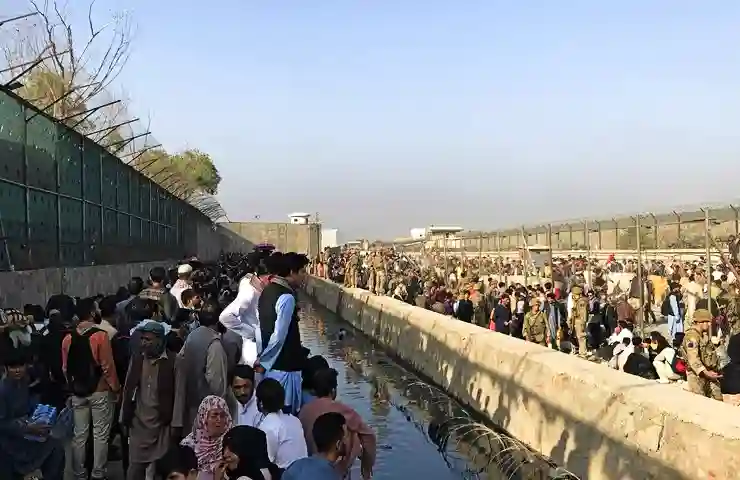The G7 online meeting organised by the UK on the tumultuous situation in Afghanistan has widened the cracks on how the allies want to go ahead with the rescue of nationals and vulnerable Afghans. The group, however, put up a joint display of unity on their roadmap for the war-torn country.
The G7 countries include the US, the UK, Canada, France, Germany, Italy and Japan. Besides the evacuation of people, they also discussed humanitarian assistance and developing a coherent Afghan policy.
The differences on the Afghan strategy show that US President Joe Biden and allies are on the opposite sides of the spectrum over numerous issues, ranging from withdrawal of people, extension of the deadline and whether troops have to be stationed in Afghanistan after August 31.
British Prime Minister Boris Johnson wants the evacuations to continue in September which has been rejected by Biden outright. Johnson also wants to keep nearly 1,000 security personnel in the country till all British citizens and friendly Afghans are evacuated. He was clear that he favours an extension of the deadline but is constrained by the fact that US troops will not manage the Kabul airport after August 31.
Stuck in Kabul? Use these OSINT maps of Taliban checkpoints, airport for safety
Turkey's Islamist leadership turns its back on Afghan migrants
Afghan humanitarian crisis grows bigger with Kabul under the Taliban
Making the British position untenable, the Taliban has reacted strongly. Spokesman Suhail Shaheen has already threatened that: "If the US or UK were to seek additional time to continue evacuations, the answer is no. Or there would be consequences".
How the Taliban and the G7 nations will resolve this dichotomy will be known only in the coming days. But Johnson's statement after the G7 meeting gave an indication that some of the allies may pressurise the Taliban beyond the deadline.
Johnson said: "The number one condition we're setting as G7 is that they have got to guarantee, right the way through, through August 31 and beyond, safe passage for those who want to come out". He added that the G7 nations had "considerable leverage economic, diplomatic and political". Johnson has almost thrown a challenge at the militant group.
Italian Prime Minister Mario Draghi laid emphasis on a common immigration policy for Europe and the G7. Soon after the G7 meeting, Draghi added that the influential group should also invite the G20 nations for discussions on Afghanistan as many of them have considerable clout in the country. In particular, he mentioned the involvement of Russia, China, Saudi Arabia, Turkey and India.
French President Emmanuel Macron also wants an extension of the deadline to ensure that Afghan men and women who had worked for the allies and face danger are pulled out to safety.
Though the European countries were unable to persuade Biden to extend the deadline, they are delving into mechanisms to pressurise the Taliban to allow willing Afghans to leave the country. Despite the chaos at the Kabul airport, and the restrictions imposed by the Taliban, the G7 also warned the militant group by saying they would, "judge the Afghan parties by their actions, not words”.
The steadfastness of the Americans was a distinct damper for many allies. German Chancellor Angela Merkel said after the meeting that "of course the United States of America has the leadership here. Without the United States of America, for example, we—the others—cannot continue the evacuation mission".
Even as the US remains adamant about the month-end deadline against the wishes of almost all of its allies, it has made a record number of evacuations from the war-torn region. Keeping its deadline in mind, it has speeded up the process of evacuating strategic people from Kabul.
The meeting was also attended by NATO Secretary General Jens Stoltenberg. NATO has been providing strategic ground support at the airport. Stoltenberg said that NATO's aim was to ensure that Afghanistan does not again become ground zero for terror organisations.




















